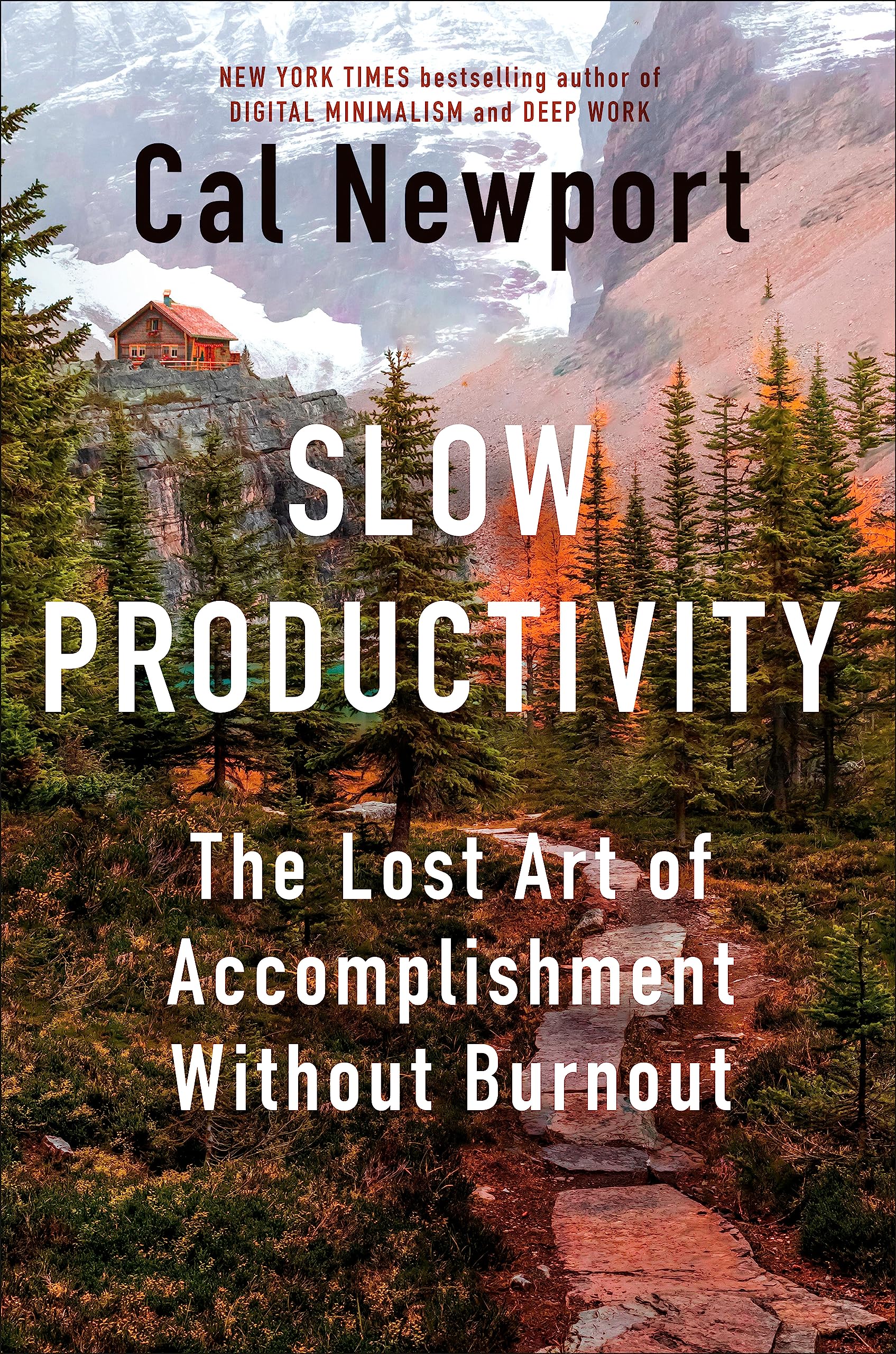
Slow Productivity: The Lost Art of Accomplishment Without Burnout
Cal Newport
About the Author

Cal Newport
Questions & Answers
The core issue with productivity in knowledge work is the confusion of "busyness" with "productivity," leading to overwhelming workloads and burnout. "Slow productivity" addresses this by advocating for a more sustainable approach based on three principles: doing fewer things, working at a natural pace, and obsessing over quality. By focusing on fewer tasks, work is less fragmented, allowing for deeper focus and higher quality output. Working at a natural pace introduces variability and relaxation, reducing burnout. Obsessing over quality ensures that the work produced is valuable, justifying the slower pace. This philosophy aims to transform knowledge work into a source of meaning and accomplishment without the exhaustion of pseudo-productivity.
"Slow productivity" redefines productivity for knowledge workers by shifting the focus from quantity and busyness to quality and sustainability. It emphasizes doing fewer things, working at a natural pace, and obsessing over quality. This approach rejects the idea that more work equals better results, instead advocating for a more balanced and meaningful work-life. By prioritizing fewer, high-impact tasks and working at a pace that aligns with human capabilities, slow productivity enables knowledge workers to produce valuable output without burnout, fostering a more sustainable and fulfilling professional life.
The three key principles of slow productivity are:
-
Do fewer things: This principle emphasizes focusing on a smaller number of tasks and projects to reduce workload and improve the quality of work. By limiting the number of missions, projects, and daily goals, individuals can avoid burnout and increase the effectiveness of their efforts.
-
Work at a natural pace: This principle suggests that work should be done at a pace that aligns with human nature, allowing for periods of rest and varying intensity levels. This approach helps maintain sustainability and prevents the exhaustion caused by relentless busyness.
-
Obsess over quality: This principle emphasizes the importance of focusing on the quality of work rather than just completing tasks. By prioritizing quality, individuals can create more meaningful and valuable outputs, which in turn provides them with more freedom and control over their work.
These principles contribute to a more manageable and fulfilling work life by reducing stress, improving focus, and fostering a sense of accomplishment. They help individuals create a sustainable work-life balance, allowing them to produce high-quality work without burning out.
Knowledge workers can implement slow productivity principles by focusing on three core principles:
- Do Fewer Things: Limit projects and daily goals, and avoid task engines. Prioritize fewer, high-impact projects and outsource or automate small tasks.
- Work at a Natural Pace: Plan long-term and double project timelines. Schedule protected time, implement "small seasonality" with quiet quitting, and define a shorter work year.
- Obsess Over Quality: Prioritize quality over quantity, and invest in rituals and spaces that enhance focus and creativity.
Practical strategies include:
- Time Blocking: Allocate specific time blocks for focused work.
- Email Management: Limit email checking and use structured emails.
- Outsourcing: Hire professionals for tasks outside your expertise.
- Setting Boundaries: Politely decline unnecessary requests and prioritize your work.
- Creating Routines: Establish daily and weekly routines to maintain balance and focus.
The slow productivity movement could significantly reshape the future of knowledge work and the broader economy. By advocating for a focus on quality over quantity, it encourages a more sustainable and meaningful approach to work. This shift could lead to:
-
Enhanced Well-being: Reducing burnout and promoting a balanced work-life balance could improve the mental and physical health of knowledge workers, leading to higher job satisfaction and retention.
-
Increased Productivity: By doing fewer things and working at a natural pace, individuals can achieve higher quality output, potentially increasing overall productivity.
-
Innovation: Slowing down can foster creativity and innovation, as it allows for deeper focus and reflection, which are crucial for groundbreaking ideas.
-
Economic Transformation: As knowledge work becomes more sustainable, it could lead to a shift in the economy, potentially reducing the reliance on fast-paced, high-stress industries and promoting more sustainable and ethical practices.
-
Cultural Change: The movement could influence broader cultural attitudes towards work, encouraging a more human-centric approach that values well-being and quality of life over relentless productivity.